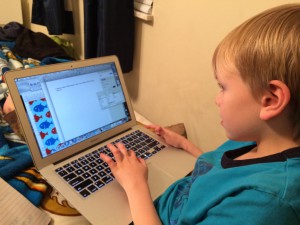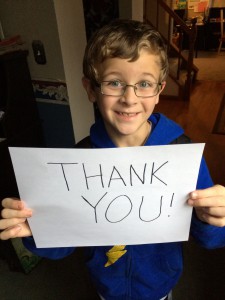The Secret of Social Media
Right now, I’m working with the U.S. part of a major corporation to plan their social media strategy for the next twelve months. We’ve identified buckets of topics to discuss, like insider info on their brand, fun contests, debatable questions and lots, and lots, and lots of photos. We’ve selected people from the various departments in the company to contribute content so it’s not all one person. But after developing all that social media content, I told the client we were only half done.
“Half?!”
My client was a bit upset.
“What more do we need??”
“You need someone that you trust to listen and reply to every comment, every retweet, every mention, every question. Social media is a party. Sometimes it’s a business party, sometimes it’s a cocktail party, sometimes it’s a Sunday afternoon football watching party. When you go to a party you don’t stand there and shout out all your thoughts. If you did that, you’d be called a jerk and never invited back. You need, as a brand, to have conversations. And that’s the secret of social media.”
“What? What is the secret?”
“Listen, and then let your customers know you heard them.”
Why brands and businesses are like little children
This client conversation was especially important to me right now because I am having the exact same conversation with my children. I am trying to train my children on the art of conversation and building relationships with people, including their family members. And that means when someone (like Mom) speaks to you, you acknowledge that you heard (‘Yes, Mom”) and answer the question (“Yes, Mom I was the one who unrolled all of the toilet paper. I was trying to see how much was left.”).
The secret to social media is simple. Talk to your customers the way you would -hopefully- talk to people in real life. You would listen to what they say and reply.
Many brands are not practicing good listening on social media. A recent study by Simply Measured showed that 98 of the top 100 brands on Twitter tweeting daily, but only 54% replied to messages. Like my little children, this makes it seem like they are simply not listening.
Good listening is hard. Really, really good listening is a learned technique. It involves certain body postures and skills like repeating back what you have heard someone say to validate their comments. It can also involve asking more questions instead of jumping to the conclusion that you already know the real issue. Lots of adults are not good listeners.
I’m not saying parents are the best listeners. But I am saying when you’re looking for someone to manage your social media, it’s not really about whether they understand ‘the technology.’ The secret to social media is to find a skilled listener.










